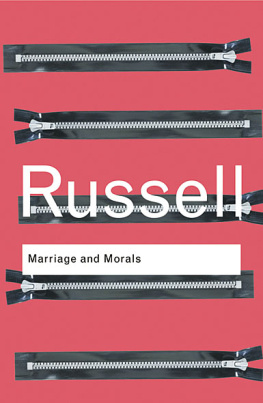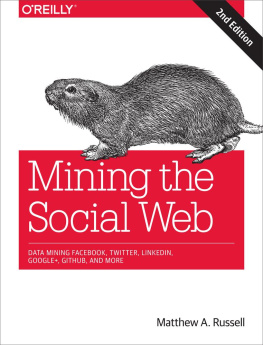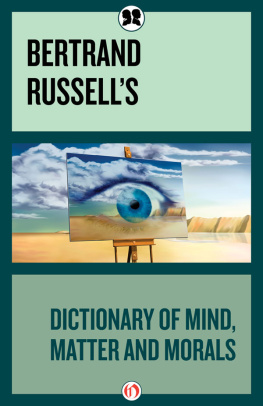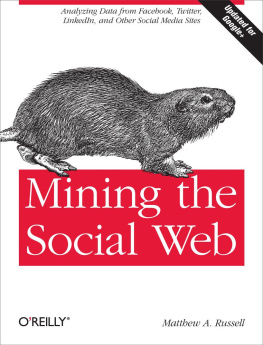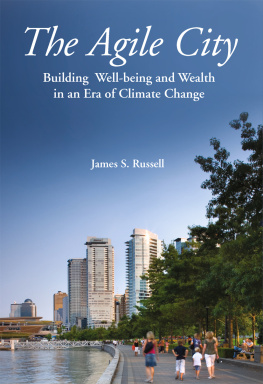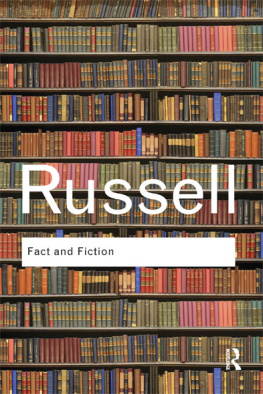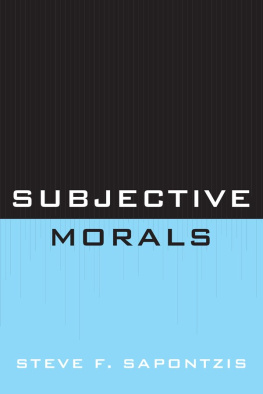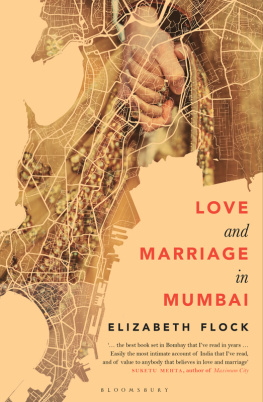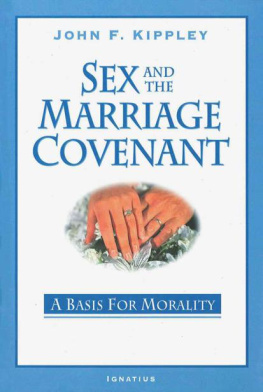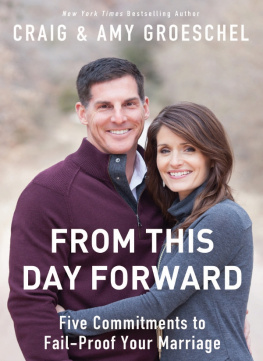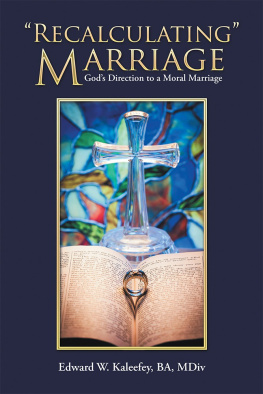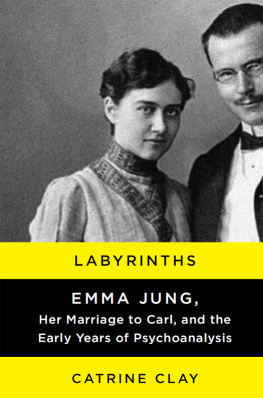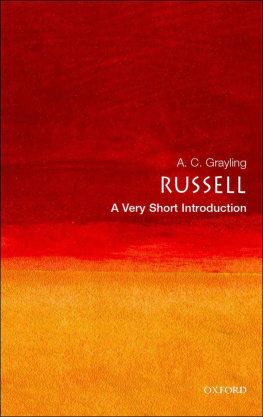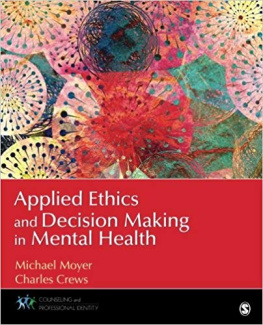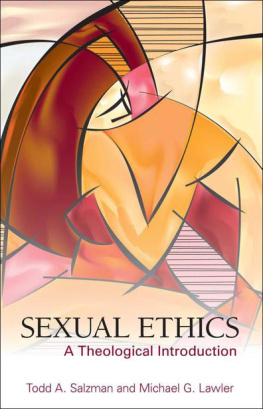Russell - Marriage and Morals
Here you can read online Russell - Marriage and Morals full text of the book (entire story) in english for free. Download pdf and epub, get meaning, cover and reviews about this ebook. year: 2009, publisher: Taylor and Francis; Routledge, genre: Religion. Description of the work, (preface) as well as reviews are available. Best literature library LitArk.com created for fans of good reading and offers a wide selection of genres:
Romance novel
Science fiction
Adventure
Detective
Science
History
Home and family
Prose
Art
Politics
Computer
Non-fiction
Religion
Business
Children
Humor
Choose a favorite category and find really read worthwhile books. Enjoy immersion in the world of imagination, feel the emotions of the characters or learn something new for yourself, make an fascinating discovery.
Marriage and Morals: summary, description and annotation
We offer to read an annotation, description, summary or preface (depends on what the author of the book "Marriage and Morals" wrote himself). If you haven't found the necessary information about the book — write in the comments, we will try to find it.
Marriage and Morals — read online for free the complete book (whole text) full work
Below is the text of the book, divided by pages. System saving the place of the last page read, allows you to conveniently read the book "Marriage and Morals" online for free, without having to search again every time where you left off. Put a bookmark, and you can go to the page where you finished reading at any time.
Font size:
Interval:
Bookmark:
Marriage and Morals
An audacious and provocative book
New Statesman
Bertrand Russell

London and New York
This edition first published in 1929
by George Allen & Unwin Ltd, London
First published in Routledge Classics 2009
by Routledge
2 Park Square, Milton Park, Abingdon, Oxon, OX14 4RN
Simultaneously published in the USA and Canada
by Routledge
270 Madison Ave, New York, NY 10016
Routledge is an imprint of the Taylor & Francis Group, an informa business
This edition published in the Taylor & Francis e-Library, 2009.
To purchase your own copy of this or any of Taylor & Francis or Routledges collection of thousands of eBooks please go to www.eBookstore.tandf.co.uk.
2009 The Bertrand Russell Peace Foundation Ltd
Introduction 1995 John G. Slator
All rights reserved. No part of this book may be reprinted or reproduced or utilised in any form or by any electronic, mechanical, or other means, now known or hereafter invented, including photocopying and recording, or in any information storage or retrieval system, without permission in writing from the publishers.
British Library Cataloguing in Publication Data
A catalogue record for this book is available from the British Library
Library of Congress Cataloging in Publication Data
Russell, Bertrand, 18721970.
Marriage and morals / Bertrand Russell.
p. cm. (Routledge Classics)
Originally published: London : George Allen & Unwin, 1929.
1. Sexual ethics. 2. Marriage. I. Title.
HQ21.R95 2009
173dc22
2008049306
ISBN13: 978-1-134-01536-8 ePub ISBN
ISBN10: 0-415-48288-7 (pbk)
ISBN10: 0-203-87534-6 (ebk)
ISBN13: 978-0-415-48288-2 (pbk)
ISBN13: 978-0-203-87534-6 (ebk)
INTRODUCTION
In characterising a society, whether ancient or modern, there are two elements, rather closely interconnected, which are of prime importance: one is the economic system, the other the family system. There are at the present day two influential schools of thought, one of which derives everything from an economic source, while the other derives everything from a family or sexual source, the former school that of Marx, the latter that of Freud. I do not myself adhere to either school, since the interconnection of economics and sex does not appear to me to show any clear primacy of the one over the other from the point of view of causal efficacy. For example: no doubt the industrial revolution has had and will have a profound influence upon sexual morals, but conversely the sexual virtue of the Puritans was psychologically necessary as a part cause of the industrial revolution. I am not prepared myself to assign primacy to either the economic or the sexual factor, nor in fact can they be separated with any clearness. Economics is concerned essentially with obtaining food, but food is seldom wanted among human beings solely for the benefit of the individual who obtains it; it is wanted for the sake of the family, and as the family system changes, economic motives also change. It must be obvious that not only life insurance but most forms of private saving would nearly cease if children were taken away from their parents and brought up by the State as in Platos Republic; that is to say, if the State were to adopt the role of the father, the State would, ipso facto, become the sole capitalist. Thoroughgoing Communists have often maintained the converse, that if the State is to be the sole capitalist, the family, as we have known it, cannot survive; and even if this is thought to go too far, it is impossible to deny an intimate connection between private property and the family, a connection which is reciprocal, so that we cannot say that one is cause and the other is effect.
The sexual morals of the community will be found to consist of several layers. There are first the positive institutions embodied in law; such, for example, as monogamy in some countries and polygamy in others. Next there is a layer where law does not intervene but public opinion is emphatic. And lastly there is a layer which is left to individual discretion, in practice if not in theory. There is no country in the world and there has been no age in the worlds history where sexual ethics and sexual institutions have been determined by rational considerations, with the exception of Soviet Russia. I do not mean to imply that the institutions of Soviet Russia are in this respect perfect; I mean only that they are not the outcome of superstition and tradition, as are, at least in part, the institutions of all other countries in all ages. The problem of determining what sexual morality would be best from the point of view of general happiness and well-being is an extremely complicated one, and the answer will vary according to a number of circumstances. It will be different in an industrially advanced community from what it would be in a primitive agricultural rgime. It will be different where medical science and hygiene are effective in producing a low death-rate from what it would be where plagues and pestilences carry away a large proportion of the population before it becomes adult. Perhaps when we know more, we shall be able to say that the best sexual ethic will be different in one climate from what it would be in another, and different again with one kind of diet from what it would be with another.
The effects of a sexual ethic are of the most diverse kinds personal, conjugal, familial, national and international. It may well happen that the effects are good in some of these respects, where they are bad in others. All must be considered before we can decide what on the balance we are to think of a given system. To begin with the purely personal: these are the effects considered by psychoanalysis. We have here to take account not only of the adult behaviour inculcated by a code, but also of the early education designed to produce obedience to the code, and in this region, as everyone knows, the effects of early taboos may be very curious and indirect. In this department of the subject we are at the level of personal well-being. The next stage of our problem arises when we consider the relations of men and women. It is clear that some sex relations have more value than others. Most people would agree that a sex relation is better when it has a large psychical element than when it is purely physical. Indeed, the view which has passed from the poets into the common consciousness of civilised men and women is that love increases in value in proportion as more of the personalities of the people concerned enters into the relation. The poets also have taught many people to value love in proportion to its intensity; this, however, is a more debatable matter. Most moderns would agree that love should be an equal relation, and that on this ground, if on no other, polygamy, for example, cannot be regarded as an ideal system. Throughout this department of the subject it is necessary to consider both marriage and extra-marital relations, since whatever system of marriage prevails, extra-marital relations will vary correspondingly.
We come next to the question of the family. There have existed in various times and places many different kinds of family groups, but the patriarchal family has a very large preponderance, and, moreover, the monogamic patriarchal family has prevailed more and more over the polygamic. The primary motive of sexual ethics as they have existed in Western civilisation since pre-Christian times has been to secure that degree of female virtue without which the patriarchal family becomes impossible, since paternity is uncertain. What has been added to this in the way of insistence on male virtue by Christianity had its psychological source in asceticism, although in quite recent times this motive has been reinforced by female jealousy, which became potent with the emancipation of women. This latter motive seems, however, to be temporary, since, if we may judge by appearances, women will tend to prefer a system allowing freedom to both sexes rather than one imposing upon men the restrictions which hitherto have been suffered only by women.
Font size:
Interval:
Bookmark:
Similar books «Marriage and Morals»
Look at similar books to Marriage and Morals. We have selected literature similar in name and meaning in the hope of providing readers with more options to find new, interesting, not yet read works.
Discussion, reviews of the book Marriage and Morals and just readers' own opinions. Leave your comments, write what you think about the work, its meaning or the main characters. Specify what exactly you liked and what you didn't like, and why you think so.

